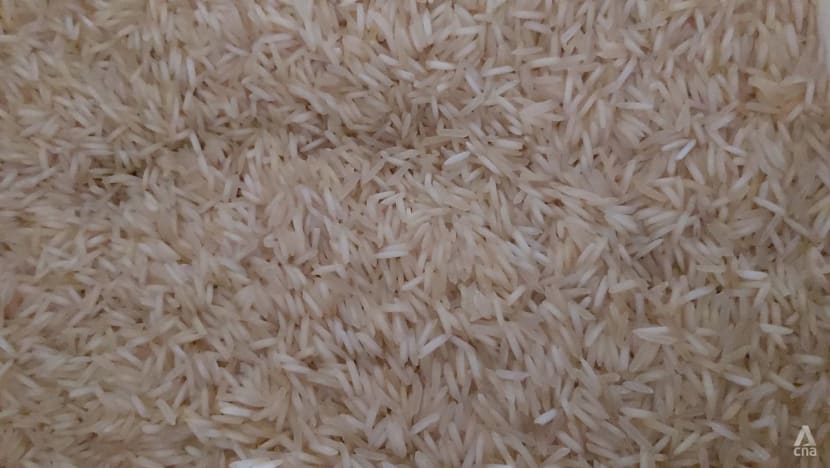Approval permits to import rice still needed, says Malaysia agriculture ministry in clarification

The import of rice into Malaysia still requires an Approved Permit (AP), said the Ministry of Agriculture and Food Industries on May 19. (Photo: CNA/Rashvinjeet S Bedi)
KUALA LUMPUR: Malaysia’s agriculture ministry clarified on Thursday (May 19) that Approved Permits (APs) are still required when importing rice.
This came after Prime Minister Ismail Sabri Yaakob announced on Wednesday that APs will no longer be needed for import of foodstuffs.
He reportedly said that this would ensure adequate food supply in the country. Mr Ismail Sabri had said then that the agriculture ministry would release the details soon.
In a statement on Thursday, the Ministry of Agriculture and Food Industries wrote that APs are no longer needed for importing round cabbage, old coconuts, chicken and milk with immediate effect.
“However, the approved permits for the importation of rice are still in effect,” it stated.
The AP is an import quota approval system.
Import of rice into the country is done solely by Padiberas Nasional Bhd (Bernas).
Bernas said on its website that it imports about 30 per cent to 40 per cent of Malaysia’s domestic rice demand, with the import volume covering the shortfall of demand after ensuring local rice production finds its way to the market.
It added that it imports special rice varieties that could not be produced locally such as basmati and fragrant rice.
The ministry said that although APs were no longer required to bring in certain food commodities from overseas, importers still needed an Import Permit (IP) for biosecurity purposes at the country’s borders.
“This is to ensure biosecurity control and that the imported products are free from disease and pests as well as being produced in facilities approved by the government,” it said in the Thursday statement.
It said that with the abolishment of the APs, all companies were allowed to import all agro-food commodities subject to the import permits issued by the Malaysian Quarantine and Inspection Services (Maqis).
The ministry added that it would continue to play an important role in ensuring the viability of the food sector at every level, so that the people had an adequate supply of food that was safe and nutritious.
“The welfare of local food producers will also continue to be preserved,” it said.
According to the Department of Statistics Malaysia (DOSM), Malaysia imported RM55.5 billion (US$12.59 billion) of food products in 2020.
Food exports were valued at RM33.8 billion that year.
In 2020, Malaysia ranked 43rd out of 113 countries in the Global Food Security Index (GSFI).
















